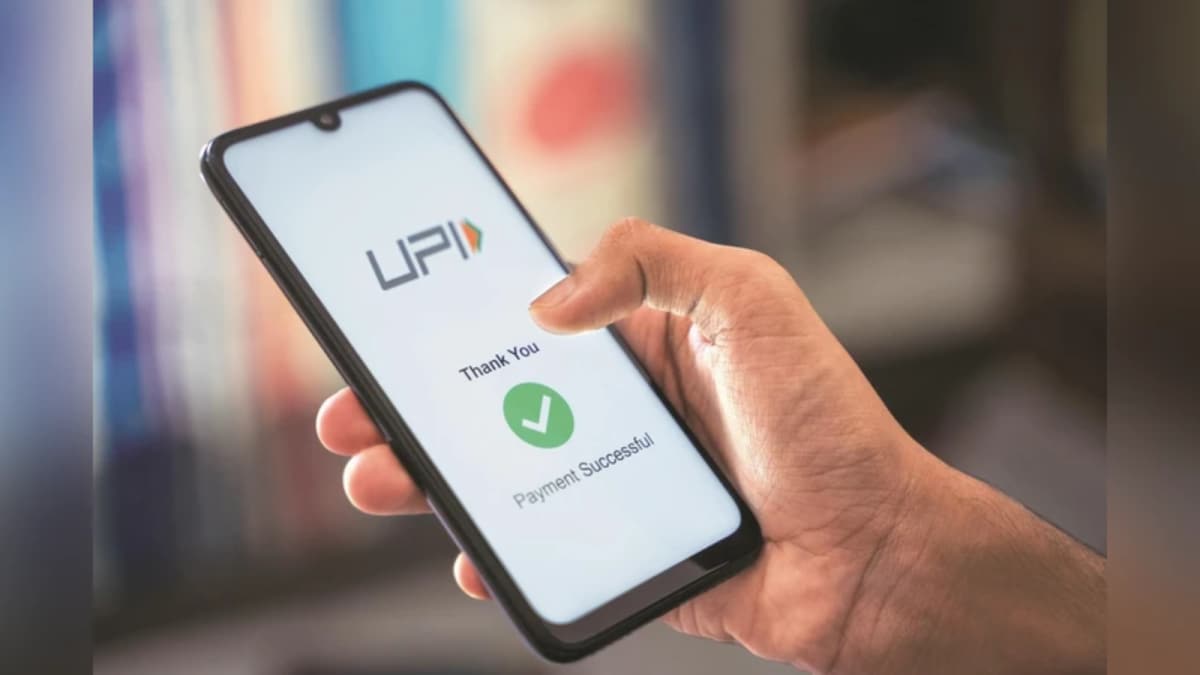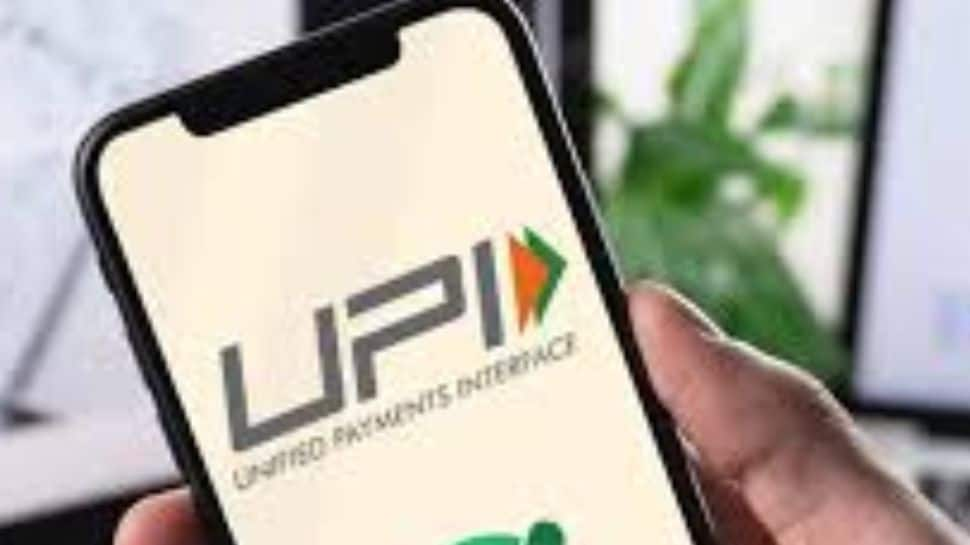Business
Indians Can Now Make Payments Through UPI Across Qatar

New Delhi: Indian travellers can now use Unified Payments Interface (UPI) in Qatar, with Qatar Duty Free outlets becoming the first merchant to go live, according to a release from NPCI International Payments Limited (NIPL). The development comes through a partnership between NIPL and Qatar National Bank (QNB), enabling UPI acceptance across Qatar via QR code-based transactions at point-of-sale terminals. The system is powered by NETSTARS’ payment solution and is expected to ease transactions for Indian visitors, who are the second largest group of international tourists to Qatar.
The introduction of UPI in Qatar allows Indians to make real-time payments at tourist attractions and retail outlets, reducing the need for cash or currency exchange. The move will also support Qatar’s retail and tourism sectors by boosting transaction volumes for merchants acquired by QNB.
Ritesh Shukla, MD & CEO of NIPL, said, “We aim to enhance the acceptance of UPI globally and create a truly interoperable global payment network. The partnership with QNB is a step towards this journey. It will help millions of Indian travellers make seamless, secure digital transactions and reduce their dependence on cash. As UPI makes its mark, we are focused on driving interoperability and making cross-border payment experiences hassle-free for users.”
From Qatar’s perspective, the introduction of UPI is being seen as a boost for its economy. Yousef Mahmoud Al-Neama, Group Chief Business Officer of QNB, said, “We are excited to introduce UPI in Qatar and proud to be at the forefront of innovating the payment landscape.
This milestone not only enhances the convenience for Indian travelers but also brings significant benefits to the Qatari market by promoting cashless transactions, boosting retail and tourist sectors, and strengthening interoperability in the payments ecosystem. Importantly, it will also enable local merchants to thrive by attracting more customers and providing them with seamless digital payment options.”
Qatar Duty Free, which operates outlets at Hamad International Airport, is the first merchant to offer UPI payments.
Thabet Musleh, Chief Retail & Hospitality Officer, Qatar Airways Group, said, “At Qatar Duty Free, we are committed to enhancing convenience and accessibility for travellers. As the first entity in Qatar to enable UPI as a payment option, we are proud to offer Indian travellers a seamless, secure, and cashless transaction experience at our outlets. This partnership with NPCI International and Qatar National Bank reflects our dedication to embracing innovative payment solutions that cater to the evolving needs of our diverse customer base. By integrating UPI, we aim to elevate the retail experience at Hamad International Airport, ensuring a smoother journey for millions of visitors.”
Technology partner NETSTARS also highlighted the significance of the launch.
Tsuyoshi Ri, Representative Director and CEO of NETSTARS Co., Ltd., said, “We are honoured to be part of this strategic partnership and milestone, enabling UPI for the first time in Qatar together with NPCI International, Qatar Airways Group and Qatar National Bank. This aligns with our mission to expand seamless and secure payment experiences globally. We are proud to contribute to this launch in Qatar, which will empower local merchants in Qatar to accept digital payments conveniently and efficiently from millions of international travellers.”
Business
Major UK supermarket to stop selling mackerel in coming weeks

Waitrose is set to remove mackerel from its shelves amid escalating concerns over unsustainable fishing practices.
The retailer said that it is the first major UK supermarket to suspend sourcing of the popular fish.
It said that fresh, chilled, and frozen mackerel, primarily sourced from Scottish waters, will be unavailable to shoppers by 29 April. Tinned varieties will follow once the current stock is depleted.
Conservationists are welcoming the move and urging other supermarkets to follow suit.
The measure comes as governments have repeatedly failed to implement catch limits recommended by scientists, jeopardising the long-term viability of mackerel stocks.
The International Council for Exploration of the Sea (ICES) has issued stark warnings, advising a 70 per cent reduction in catches for 2026 across all regional mackerel stocks compared to 2025’s recommended levels.
With the stock consistently fished above sustainable thresholds, this translates to a 77 per cent cut on the 755,143 tonnes scientists estimated would be caught in 2025.
Overfishing has resulted in depleting mackerel stocks in the north-east Atlantic, with Ices saying the species, and the wider fishing industry, could face long-term risks unless countries stick to recommended catch limits.
Waitrose said the decision in December by four of the coastal states which fish mackerel to cut catches by 48 per cent was a step forward, but did not meet Ices advice.
North-east Atlantic mackerel will no longer meet the supermarket’s responsible sourcing requirements in line with the Sustainable Seafood Coalition codes of conduct, the retailer said.
Jake Pickering, head of agriculture, aquaculture and fisheries at Waitrose, said: “By suspending sourcing of mackerel at Waitrose we are reinforcing our ethical and sustainable business commitments, acting to tackle overfishing and protect the long-term health of our oceans and this crucial fish.
“Our customers trust us to source responsibly, and we are closely monitoring the fishery.
“We look forward to bringing mackerel back to our shelves once it meets our high sourcing standards.”
As alternatives, Waitrose is launching a new range of fish products including hot smoked herring, hot smoked peppered herring and hot smoked sweetcure seabass, all of which are Marine Stewardship Council (MSC) certified.
The retailer said it would also introduce MSC-certified frozen sardines from May as a sustainable replacement for frozen mackerel, and plans to become the first retailer to sell 100 per cent MSC tinned sardines.
Waitrose said it would maintain its relationship with its mackerel suppliers and its new supply of herring, seabass, sardines and trout will be sourced through current supplier partnerships.
But there is currently no predetermined time-frame as to when Waitrose will start sourcing mackerel again.

Marija Rompani, director of ethics and sustainability at the John Lewis Partnership, said: “We believe sustainable food production must balance climate action, nature protection and responsible fish sourcing is fundamental to protecting our oceans.
“We will continue to work closely with suppliers and industry partners to support the recovery and responsible management of fish stocks.”
Charles Clover, co-founder of conservation charity Blue Marine Foundation, said mackerel – one of the largest remaining commercial fish stocks in the north-east Atlantic – had declined 75 per cent in the last 10 years because fishing nations, including the UK, had overfished it.
“They have put too little effort into the task of reaching agreement on a sharing arrangement – and some countries have been awarding themselves more quota than is justified by science,” he said.
“This crisis has been ignored for too long.
“We hope that this action by Waitrose sends it to the top of the political agenda. We call on other retailers to follow Waitrose’s example.”
Business
Rolls-Royce profits soar after major UK and US defence orders

Rolls-Royce has announced a significant surge in its annual profit, climbing by £1 billion, alongside an upgraded financial outlook for the coming years.
The engineering powerhouse attributed this robust performance to substantial military aircraft orders and burgeoning demand for powering data centres.
The company reported an underlying operating profit of £3.5 billion for 2025, marking a 40 per cent increase from the £2.5 billion achieved in the previous year.
Underlying revenues also surpassed £20 billion over the period, representing approximately a tenth’s rise compared to 2024.
This impressive growth was fuelled by strong profit and sales across its civil aerospace, defence, and power divisions.
Rolls-Royce highlighted particularly strong demand for its defence products, securing major orders throughout 2025. The firm stated its various business units are well-positioned to capitalise on “key global trends” in the years ahead.
This included contracts worth more than £1.5 billion with the UK’s Ministry of Defence and the US’s Department of War for EJ200 and AE 2100 engines to power military aircraft.
New orders for the Eurofighter aircraft engines from Italy, Germany and Spain, as well as export agreements from Turkey, will drive production into the 2030s, it said.
Furthermore, Rolls-Royce said it was benefiting from growing demand for power generation, driven by data centres with revenues up by more than a third.
Rolls-Royce said it was now expecting underlying operating profits to increase to between £4.9 billion and £5.2 billion by 2028 following the strengthened financial performance in 2025.
This is significantly higher than the £3.6 billion to £3.9 billion range that it had previously been targeting.
Chief executive Tufan Erginbilgic said growth would not have been possible “before our transformation”, with the business making £600 million worth of cost savings since 2022.

“With our new capabilities and mindset, we have navigated challenges from supply chain to tariffs, and delivered a strong performance in 2025, all while we built the foundations for significant growth for years to come,” he said.
“Based on our 2026 guidance, we expect to deliver underlying operating profit within the prior mid-term guidance range two years earlier than planned.
“Beyond the mid-term we continue to see significant growth from existing businesses as well as from new business opportunities.”
Business
Gold Could Hit 7500 Per Ounce: Gold in ‘structural repricing phase’, could hit $6,000 in 12 months: Report – The Times of India

Gold’s long-term outlook remains bullish as global de-dollarisation, rising fiscal stress and escalating geopolitical tensions reshape the global financial order, according to a report by Motilal Oswal Financial Services Ltd (MOFSL).In its latest Precious Metals Quarterly Report, the brokerage said gold prices crossed the $5,000 per ounce mark in early 2026, marking one of the strongest long-term bull phases in modern history.The firm said gold has entered a “structural repricing phase,” signalling the beginning of a new supercycle rather than a short-term cyclical rally.
Target of $6,000 in 12 months, $7,500 medium term
MOFSL expects Comex gold to settle towards $6,000 per ounce — equivalent to around Rs 1.85 lakh per 10 grams domestically — over the next 12 months. It also sees the potential for prices to move towards $7,500 per ounce in the medium term if geopolitical and fiscal pressures intensify.“The long-term outlook for gold remains positive. As global reserves gradually diversify away from dollar-centric assets and physical supply remains constrained, gold prices are likely to stay supported around and above $5,000 per ounce,” Navneet Damani, head of research, Commodities, Motilal Oswal Financial Services Ltd, said, as quoted by news agency PTI.Damani added that the current cycle is being driven not just by inflation, but by confidence — or the lack of it — in fiscal and monetary systems.
Gold rises despite positive real rates
The report highlighted that gold continued to climb even when real interest rates were positive between 2023 and 2025 — a period when prices would typically decline.This trend indicates that investors are increasingly worried about mounting global debt levels and the long-term stability of fiscal and monetary frameworks.“Gold’s strength despite positive real interest rates shows a clear shift in investor thinking. Real returns are increasingly seen as temporary and policy-driven, which reduces the cost of holding gold and strengthens its role as a safeguard against broader financial risks,” Manav Modi, analyst – commodities, MOFSL, said.
Geopolitical tensions, supply constraints add support
According to the report, rising geopolitical tensions in Eastern Europe, the Middle East and Asia, along with renewed trade tensions and tariff-related disruptions, have heightened inflation and currency volatility, making gold more attractive as a neutral and reliable asset.Damani noted that as fiscal stress increases and questions emerge over monetary independence, gold’s role as non-sovereign money has gained prominence, leading to a structural shift in demand.The brokerage also pointed to tight global physical supply conditions supporting prices. Limited mine output, shrinking inventories across major exchanges and rising production costs have kept precious metal prices elevated.
Domestic demand and central bank buying
On the domestic front, rupee depreciation and strong retail demand have further supported gold prices. Exchange-traded funds (ETFs) have seen renewed inflows after years of decline, the report said.Central banks have remained consistent buyers, adding around 1,000 tonnes of gold annually for four consecutive years as part of efforts to diversify reserves and reduce reliance on dollar-based assets.Overall, MOFSL expects gold to remain well supported over the long term, driven by reserve diversification, constrained supply growth and ongoing global economic and geopolitical uncertainty.
-

 Fashion1 week ago
Fashion1 week agoPhilippines expands logistics network to address supply chain issues
-

 Sports1 week ago
Sports1 week agoNepal wrap up T20 World Cup campaign with Scotland triumph
-

 Tech7 days ago
Tech7 days agoA $10K Bounty Awaits Anyone Who Can Hack Ring Cameras to Stop Sharing Data With Amazon
-

 Fashion6 days ago
Fashion6 days agoICE cotton ticks higher on crude oil rally
-

 Sports1 week ago
Sports1 week agoUSA vs. Canada is the women’s Olympic hockey rematch everyone was waiting for
-

 Business6 days ago
Business6 days agoUS Top Court Blocks Trump’s Tariff Orders: Does It Mean Zero Duties For Indian Goods?
-

 Business5 days ago
Business5 days agoEye-popping rise in one year: Betting on just gold and silver for long-term wealth creation? Think again! – The Times of India
-

 Entertainment5 days ago
Entertainment5 days agoViral monkey Punch makes IKEA toy global sensation: Here’s what it costs









